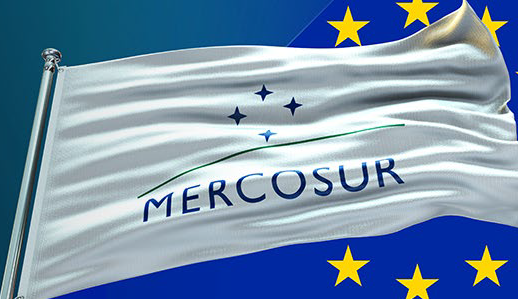The Economic Impact of the agreement UE-Mercosur

The secretariat of state for trade commissioned a study to analyse in depth the impact of the association agreement between the eu and Mercosur on the spanish economy. It is an agreement of high complexity that has not yet entered into force. To that end, the perpetrators used a model of computable general equilibrium capable of capturing the direct and indirect impacts of the agreement.
The study analyses the impact of lower (i) of tariff and non-tariff barriers to trade in goods and services, (ii) of the barriers to direct investment, mainly through multinational companies, as well as (iii) the opening of the procurement. Additionally, it is also studying the effects of the agreement on CO emissions2the potential exporter, spanish, the potential to IDE or e-commerce.
The study concludes that the agreement will have a positive economic impact on the gdp of the two blocs, being this greater effect to Mercosur because the eu is one of its most important markets and it had opened a very high percentage of their imports from Mercosur. The study estimates that exports of Spain to Mercosur grow by 37%, when agreement has deployed its effects, which will lead to greater production (0.23 per cent of gdp) and employment (0.11 per cent, equivalent to more than 22,000 jobs) in the majority of productive sectors.
The sectoral distribution expected from the effects of the agreement on the 41 sectors and products analysed is mixed since the increase in trade flows would affect the products in which specialises in the spanish economy. In this regard, manufactured exports would be the main beneficiaries with a growth of 0.35 per cent at the end of the implementation of the agreement. It also analyses the sectoral impact arising from the greater domestic consumption associated with the growth of gdp.
Noting that the biggest impacts for spain derived from the abolition of tariffs, tariff levels of departure are relatively high, followed by direct investment that is particularly important because of the base of spanish companies in Mercosur.
The effects of the agreement will be progressively as they were removing barriers according to the timetable agreed. Thus, the study assumes the existence of four liberalizing shocks, in the year 1, 5, 11 and 16, after which will be implemented fully the measures of the agreement.
Under the assumption of continued political, economic activity would be an increase of associated CO emissions2but the additional activities would be less intensive CO2the current, so that the increase in emissions would be very limited.
When interpreting the results of the study is important to bear in mind that they are a good approximation to the impact understandable, but must be taken with caution, since any model is based on assumptions that simplify significantly the economic reality. This is particularly important, as disaggregated results by sectors and products.
The Economic Impact of the agreement UE-Mercosur [PDF] [12.7 KB]
Has this page helped you?
Thanks for your comments.